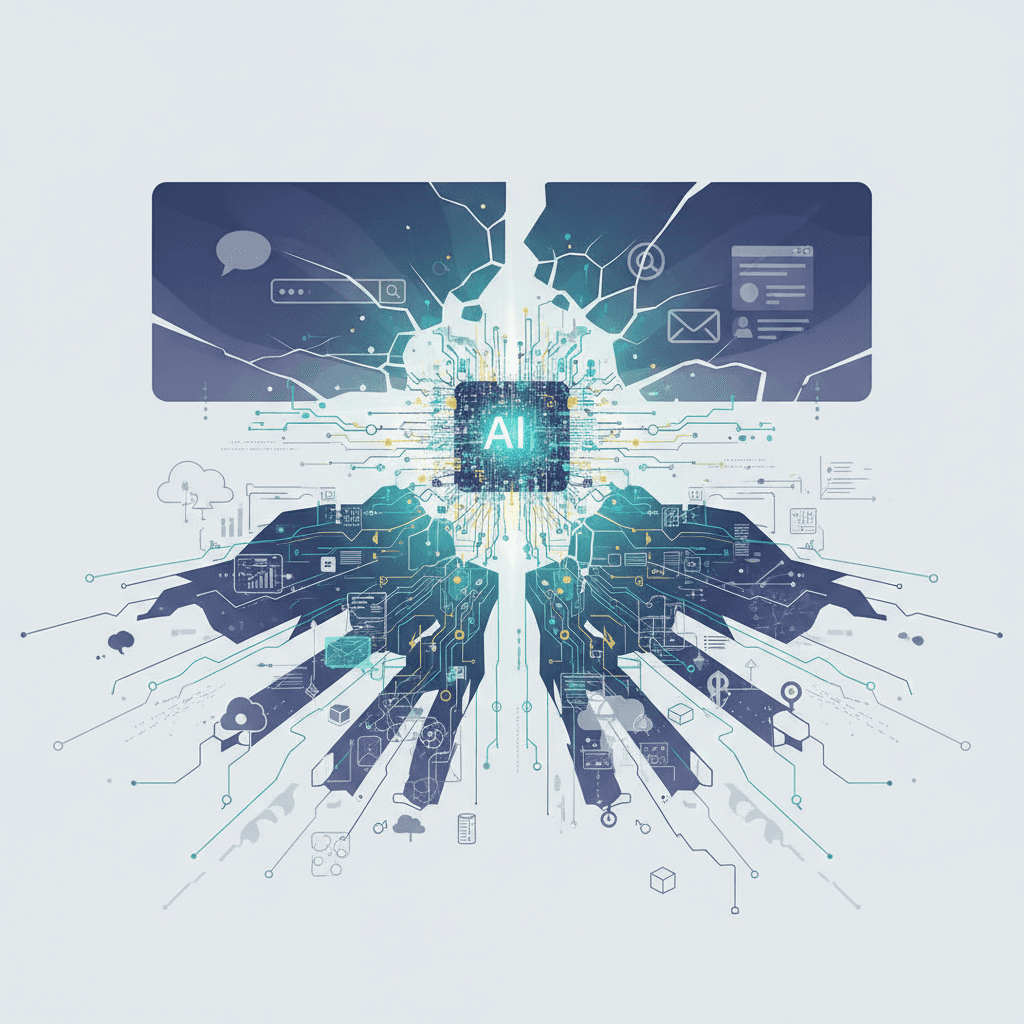OpenAI Warns: Public Underestimates AI's Rapid Leap Towards Discovery
AI's true power is obscured by its seamless integration into daily life, creating a perilous public perception gap.
November 9, 2025

In a world increasingly saturated with artificial intelligence, the gap between the technology's exponential advancement and the public's perception of it is widening, according to recent statements from industry leader OpenAI. The company suggests that because AI is often experienced through mundane, everyday applications, most people fail to recognize the profound and rapid progress happening behind the scenes. This disconnect, OpenAI warns, could have significant consequences as AI systems grow ever more powerful, capable of tackling tasks that were once the exclusive domain of human experts.
OpenAI articulated this concern in a November blog post, asserting that the popular understanding of AI is largely confined to chatbots and enhanced search functions.[1] However, the reality is that current systems are already outperforming top human minds in complex intellectual competitions.[1] The company noted a vast gap between how most people use AI and its actual present capabilities.[1] This sentiment points to a crucial paradox: as AI becomes more seamlessly integrated into our daily routines, its true power becomes more invisible. From the spam filters in our email inboxes and the autocorrect on our phones to the algorithms that suggest what to watch on streaming services, AI is performing countless tasks that have become so commonplace they are often taken for granted.[2][3][4][5] This quiet integration into routine work and life may be masking the sheer velocity of AI's development.
The presence of AI in the workplace extends far beyond these consumer-facing examples. In human resources, AI-driven systems scan and filter resumes, identifying suitable candidates long before a human recruiter sees their application.[3] Financial services employ AI for real-time fraud detection and algorithmic trading, tasks that require immense computational power and speed.[3] Even in fields not traditionally associated with high technology, AI is making inroads. For instance, AI is now being used in beekeeping to monitor hive health and in winemaking to predict optimal harvest times.[6] Customer service is another area where AI is deeply embedded, with chatbots handling a large volume of inquiries without human intervention.[4] These applications, while improving efficiency, are often designed to be unobtrusive, further contributing to the public's potential underestimation of the technology's sophistication. The automation of these routine administrative and operational tasks frees up human workers for more complex and creative endeavors, but also subtly shifts the baseline of what is considered normal technological assistance.[5]
This growing chasm between public perception and technological reality has significant implications for the AI industry and society at large. Surveys have shown a consistent divide between the views of AI experts and the general public. While experts tend to be more optimistic about AI's potential, the public often expresses more concern, particularly regarding job displacement.[7] A lack of broad understanding about AI's current capabilities can lead to a less informed public discourse on crucial issues like regulation, safety, and ethical guidelines. If the public primarily views AI through the lens of simple consumer tools, there may be less urgency to address the more complex challenges posed by rapidly advancing systems. OpenAI has voiced its own concerns about the potential for future "superintelligent" systems to pose catastrophic risks if not developed and deployed with extreme caution.[8][1] The company has called for stronger public oversight and a global "AI resilience ecosystem" to manage these risks.[1]
Ultimately, OpenAI's message serves as a wake-up call. The company predicts that by 2026, AI will be capable of making minor scientific discoveries, and by 2028, these discoveries could become significant.[8][1] This trajectory from automating mundane tasks to generating new knowledge represents a pivotal shift. As AI continues its relentless advance, the need for a more informed and engaged public becomes increasingly critical. The challenge for the AI industry will be to not only push the boundaries of innovation but also to foster a greater understanding of the technology's true power and its potential to reshape our world in ways that are far from routine. The conversation about artificial intelligence must evolve beyond chatbots and search engines to encompass the full scope of its capabilities and the profound questions it raises for the future of work, society, and humanity itself.